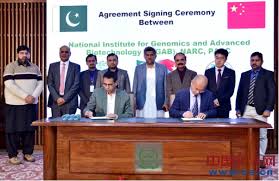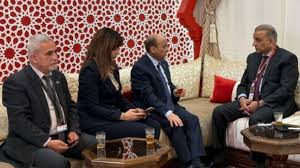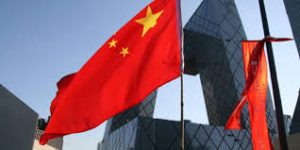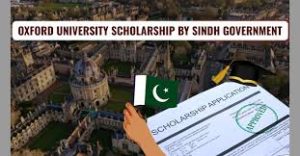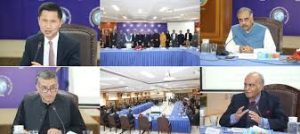State institutions ‘on same page’ to achieve rule of law, justice: President
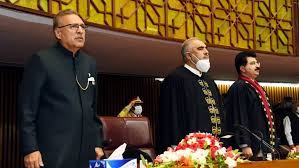
Islamabad: President Dr Arif Alvi on Thursday said all the state institutions of Pakistan, including parliament, army and judiciary, were “on the same page” with a united approach of ensuring rule of law and social justice for the people.State institutions ‘on same page’ to achieve rule of law, justice: President
“Our state institutions are in unison and pursuing the same vision of overcoming challenges confronting the country,” the president said in his address to the joint sitting of parliament on the start of new parliamentary year.
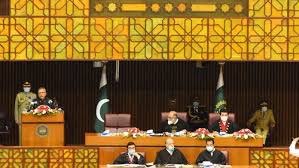
Prime Minister Imran Khan, Senate Chairman Sadiq Sanjrani, National Assembly Speaker Asad Qaiser and parliamentarians attended the session.
The joint session of Senate and National Assembly was convened by President Alvi in exercise of his powers under Article 54(1) of the Constitution.
Our state institutions are in unison and pursuing the same vision of overcoming challenges confronting the country
The president, in his address, touched upon several issues, from the government’s pro-active foreign policy, strategy to deal with the coronavirus pandemic, improvement in economic situation and launch of social welfare projects, which, he said, had altogether put the country on path to prosperity.
Dr Alvi said Pakistan was literally at its tipping point of emerging as a forward-looking nation.
“Pakistan is seeing a bright future, favouring development and innovation for the first time in its history,” he said.
President Alvi said overcoming of the COVID-19 challenge as a result of the government’s prudent smart lockdown policy combined with the nation’s discipline and positive response was exemplary.
Despite the pressure for a complete lockdown, he said, the government’s priority of minimizing the negative financial impact on the poor, made the country to opt for the right strategy.
“Nations are built by making strong decisions which are not solely based on data and science, but empathy as well,” he said, adding the vision was “not to let the poor die” in contrast to several developed countries.
Dr Alvi mentioned that to cope with the situation, the government provided a relief package of Rs 1.2 trillion to the business community, besides disbursing Rs 200 billion among deserving families through the Ehsaas social welfare programme.
Nations are built by making strong decisions which are not solely based on data and science, but empathy as well
He paid tribute to doctors and paramedics, politicians, armed forces, Ulema and media for their role and also the National Command Operation Centre and the National Disaster Management Authority for withstanding the pressure amid the pandemic.
“This is what the Constitution says about, which the nation demonstrated through its unity during difficult times,” he remarked.
The president said Pakistan confronted other challenges with perseverance, including counter-terrorism and hosting 3.5 million Afghan refugees for over four decades.
“It is the success of nation which always stood solid with resilience to deal every challenge,” he said, stressing the need to end an atmosphere of despondency among the people, particularly the youth who had the will to deliver.
President Alvi said the government put the country’s policy in right direction in view of challenging international and regional scenario.
He lauded Prime Minister Imran Khan’s recent policy statement where he said Pakistan would not recognize Israel until the Palestinians were given their due rights. He termed the stance in line with the views of Quaid-e-Azam Muhammad Ali Jinnah on Palestine.
On the Kashmir dispute, he said Pakistan rejected India’s move of August 5 last year aimed at changing demography of Muslim majority Jammu and Kashmir Valley.
He said India was trying to impose the ideology of Hindutva against Muslims and other minorities in the country, a strategy also condemned by international human rights organizations, media and parliamentarians from around the world.
He said Imran Khan proved himself to be a true ambassador of Kashmir by highlighting the plight of Kashmiri people at all international forums.
India was trying to impose the ideology of Hindutva against Muslims and other minorities
Dr Alvi urged the world to take notice of the military siege in the Indian Illegally Occupied Jammu and Kashmir. India, he said, always violated every agreement namely Geneva Convention, Human Rights Charter, Simla Agreement and the United Nations resolutions.
He thanked China, Turkey, Malaysia, Iran and Azerbaijan for their strong support to Pakistan on the issue of Jammu and Kashmir, and condemning the Indian atrocities.
The president said Pakistan had strong relations with Saudi Arabia and wanted to further strengthen them. Saudi Arabia stood by Pakistan in every difficult time and “we are very grateful to our brotherly Islamic country for this”.
On Afghanistan, he said Pakistan suffered the most due to conflict in its neighbouring country. Peace and reconciliation in Afghanistan would benefit Pakistan to a great extent, he added.
President Alvi expressed satisfaction over the country’s economic situation gaining stability despite difficult circumstances amid the coronavirus pandemic.
He said the current account deficit dipped from $20 billion to $3 billion in two years, while foreign exchange reserves were up from $8.5 billion to $12.5 billion.
Other areas with significant progress included exports in July exceeding $1.9 billion, recording an increase by 5.8 percent as compared to the previous year, he added.
The increase in foreign remittances from $20 billion to $23 billion, he said, showed the immense trust reposed by the overseas Pakistanis in the government.
“It is the time to renew work on establishing the voting rights for overseas Pakistanis as pledged to them earlier,” he said.
The president said the international rating agency Moody’s had recently announced Pakistan’s rating as B3 stable, while Fitch Ratings also rated the country’s economic outlook as stable, which was a welcome development.
He said it was encouraging that Pakistan had moved up 28 places in the ease-of-doing business ranking, gaining 108th position from 136th.
President Alvi said a package of Rs 280 billion was given for the improvement of agriculture sector, besides provision of cheap electricity to tube-wells.
During the last financial year, he said the agriculture sector grew at the rate of 2.7 percent that helped meet food needs, whereas fruit and vegetable exports, particularly mangoes, benefited the country’s economy with $730 million.
The president lauded the start of construction work at the long-delayed Diamer Bhasha Dam, which, he said, would not only generate 4,500 megawatts electricity but also provide jobs to 16,500 people.
He said the recent approval of Main Line-1 project by the Executive Committee of the National Economic Council (ECNEC) for expansion and improvement of the rail track would ensure faster transport facilities, and reduce distance and cost of business.
On the Gwadar Port, he said the venture would strengthen economic cooperation among regional countries, including Afghanistan and Central Asia. It would also change the destiny of Balochistan with a prosperous future, he added.
President Alvi appreciated the government’s efforts to promote the education sector, particularly the launch of 50,000 annual scholarships in higher education sector, and expressed the confidence that efforts for a uniform national curriculum would help end social disparity and promote national harmony.
He said the distance-learning education proved to be an effective way during the pandemic through introduction of tele-school and saved the precious time of students.
He stressed that Pakistan needed to take further steps in the field of information technology to accelerate economic growth.
On the population growth, he said Pakistan being the fifth largest country in the world with over 200 million populace, required effective steps to deal with the situation. Encouraging breastfeeding among mothers would not only reduce malnourishment and stunting in children, but also help in birth-spacing.
He said the Sehat Sahulat Health Card was a commendable initiative by the government for providing healthcare to all members of a family as large population of the country suffered with diseases such as Hepatitis and Tuberculosis.
“It is the state’s responsibility to take care of the education and health of its people by taxing elite and diverting the money towards public welfare,” he said.
President Alvi stressed mainstreaming of the people with special needs and implementing laws in full letter and spirit for their uplift, and also called for ensuring the inheritance rights of women in line with the Quranic teachings.
He lauded the parliament for passing the FATF-related law and the Anti-Money Laundering Amendment Bill, and also pointed out the need to focus on controlling smuggling in the country.
As regards the civic problems of Karachi, he welcomed the positive consultations between the federal and provincial government to address the issues on priority.
He said the government’s Clean and Green Pakistan initiative was the corrective measure to protect the environment.
Concluding his speech, President Alvi said democracy was essential for Pakistan’s bright future and hoped that the parliamentarians would fulfill their duties holding the interest of the country supreme.

